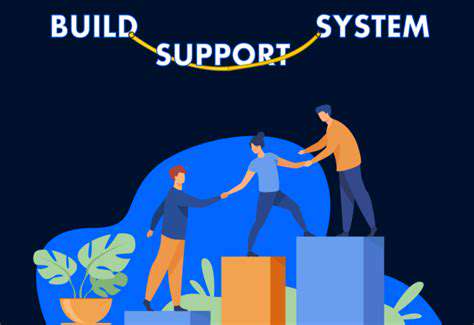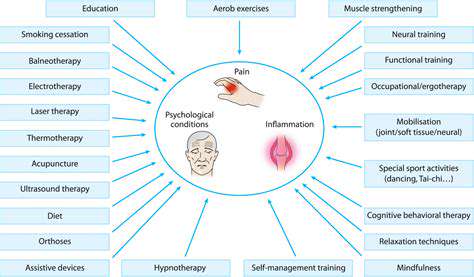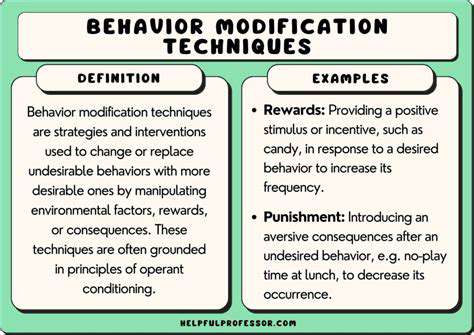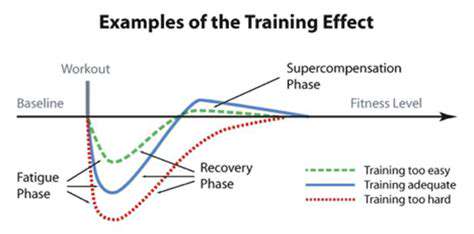Guide to Managing Grief and Loss
Building a Support System: Seeking Help and Guidance

Building a Strong Foundation
Establishing a robust support system is crucial for navigating life's challenges. It's not about seeking help from others only when things get difficult; it's about cultivating a network of support that can provide encouragement, guidance, and a sense of belonging throughout the journey. This foundation should include people who can offer emotional support, practical assistance, and a listening ear.
Identifying individuals who resonate with your values and who can offer constructive feedback is an important part of building a strong support system. A diverse group of individuals with differing perspectives can provide a wider range of support and perspectives, fostering a more comprehensive and balanced approach to problem-solving.
Understanding Your Needs
Defining your specific needs is vital to creating a support system that truly meets your requirements. Are you looking for emotional support, practical help, or a combination of both? Understanding your needs will allow you to identify individuals who can best cater to those requirements.
Consider what aspects of your life you find most challenging and where you feel you need the most support. Honest self-reflection will help you to pinpoint the areas where you need the most assistance.
Identifying Potential Supporters
Expanding your support network involves actively seeking out individuals who share your values and interests. This could involve joining clubs, groups, or communities related to your hobbies or passions. Reaching out to people you already know and trust can also be an excellent way to identify potential supporters.
Exploring online communities or forums can be a valuable way to connect with like-minded individuals who can provide support and encouragement. There are numerous online platforms that cater to specific interests and needs.
Cultivating Meaningful Connections
Building a support system is not just about collecting names; it's about fostering genuine connections. Actively engaging with potential supporters, demonstrating empathy, and being open to receiving support are crucial for building a strong and lasting relationship. This requires patience, understanding, and a willingness to listen and be heard.
Maintaining Open Communication
Maintaining open communication with your support network is essential for ensuring that your needs are met effectively. Regular check-ins, expressing gratitude, and providing feedback will help to strengthen these relationships and ensure that your support system remains responsive to your evolving needs.
Regular communication also allows you to stay connected to the people who support you. This ongoing connection is key to ensuring that your support system is always there for you, offering encouragement and guidance.
Recognizing Limitations
It's important to acknowledge that not everyone will be a good fit for your support system. It's okay to set boundaries and limit interactions with individuals who do not provide the support you need or who contribute negatively to your well-being. This process of recognizing boundaries and limitations is crucial for the long-term success of your support network.
Adapting and Evolving
Support systems are not static; they change and evolve as your life circumstances do. Regularly evaluating your support network and making adjustments as needed is essential for maintaining a healthy and effective support system. This flexibility ensures that your support network remains relevant and responsive to your evolving needs.
Adapting your support system as you grow and change is vital. Maintaining a strong support system requires continuous evaluation and adjustments to ensure it effectively meets your needs and promotes your well-being.

Read more about Guide to Managing Grief and Loss
Hot Recommendations
-
*Guide to Managing Gout Through Diet
-
*Best Habits for Financial Well being
-
*How to Build a Routine for Better Mental Health
-
*How to Eat Healthy on a Budget [Tips & Meal Ideas]
-
*Guide to Practicing Self Acceptance
-
*How to Incorporate More Movement Into Your Day
-
*Guide to Managing Chronic Pain Naturally
-
*Guide to Building a Reading Habit for Well being
-
*Top 5 Weight Loss Supplements That Actually Work
-
*Best Exercises for Postpartum Recovery [Beyond Abdominal Work]





